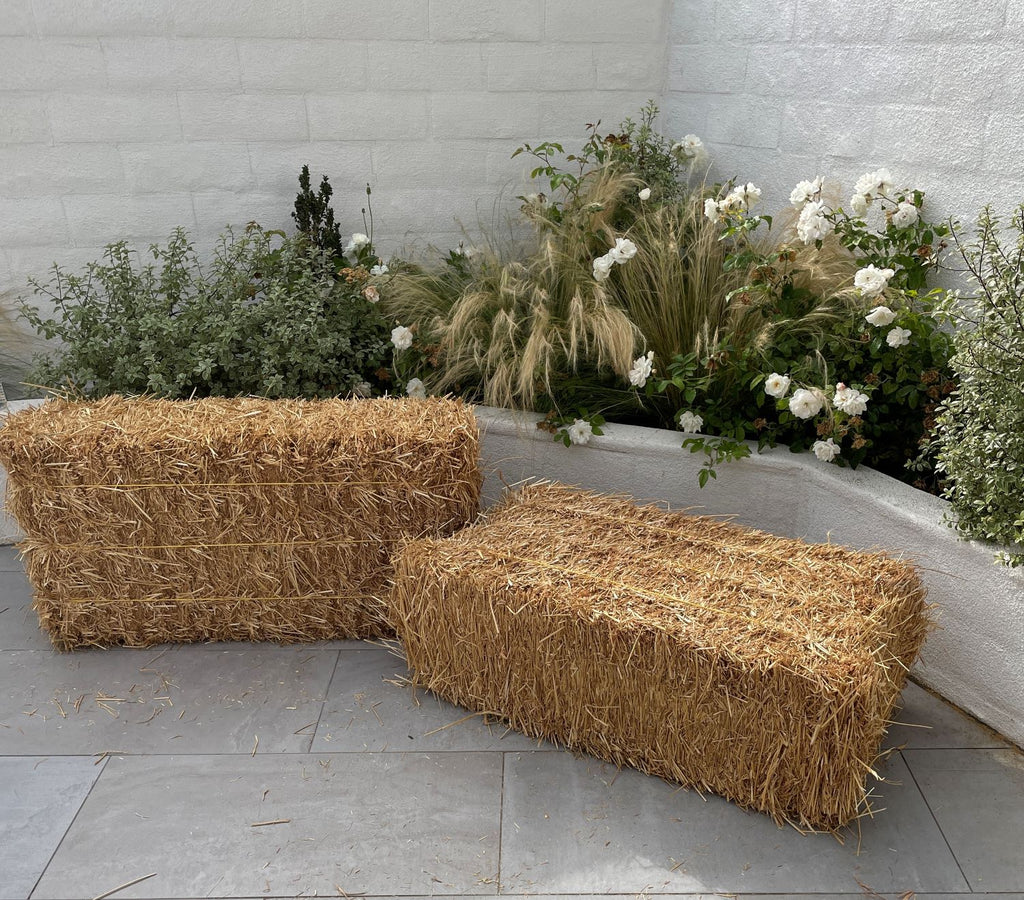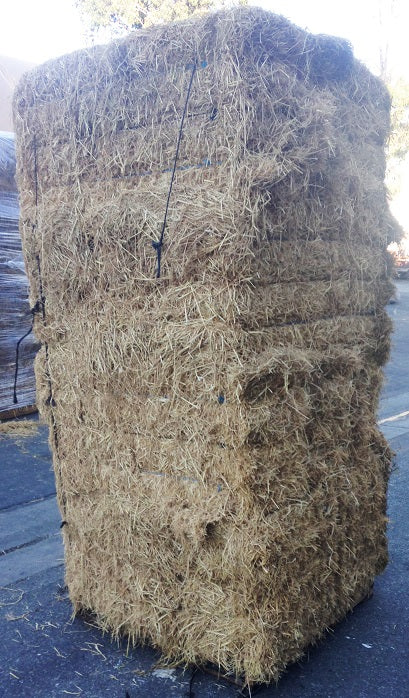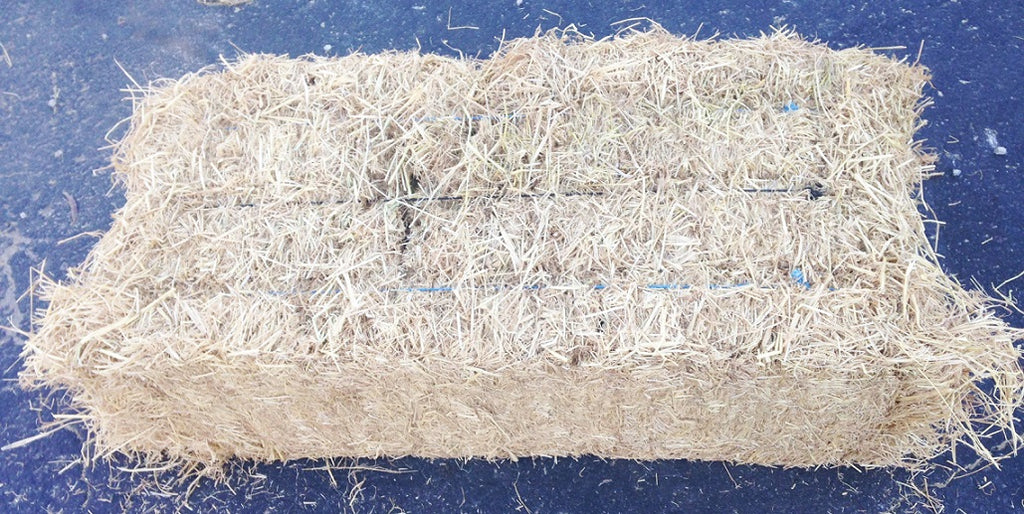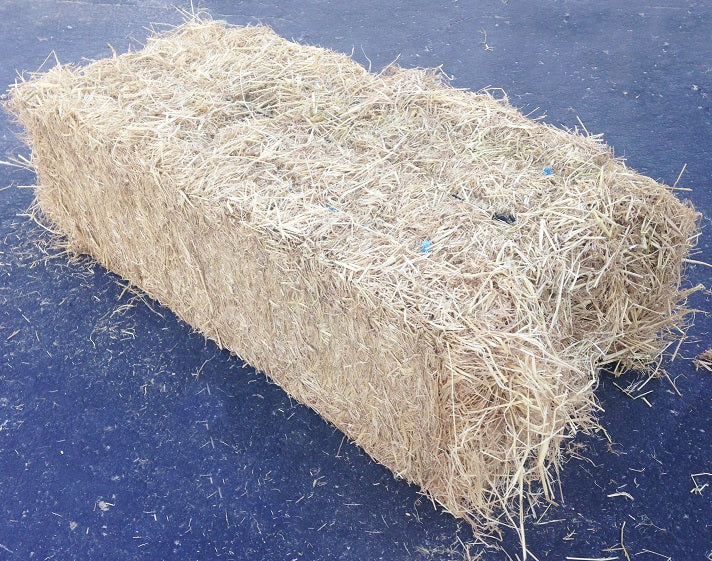
Rice Straw Bales - Certified Weed Free (Biodegradable) - 46" x 15" x 22" - Made in the USA
Perfect for Erosion Control, Gardening, Décor, & More!
Sandbaggy certified weed-free rice straw bales are a versatile, environmentally-friendly solution for your erosion control, gardening, or decorative needs. These straw bales help promote healthy soil, reduce the risk of pests, and prevent the spread of invasive plants, making them safe to use for a variety of applications. Order these large straw bales wholesale, as low as $55.5 each.
Specs
- Product Dimensions: 46" x 15" x 22"
- Material: Straw
- Straw Type: Rice
- Weight: 75 lbs
- Slope Angle: 2:1 to 4:1
- Country of Origin: USA
Features
- Made in the USA: Support American jobs, American infrastructure and American FAMILIES. The straw used in these bales was grown in Northern California.
- Safe & Reliable Option (Certified Weed Free): Protect your soil and your local ecosystem with certified weed free straw bales. A safer and more reliable choice for gardening, landscaping, and erosion control, these straw bales help to protect and prevent the spread of invasive species, pests, and other harmful contaminants.
- Made From Rice Straw: Rice straw breaks down slower as compared to other types of straw. It is more resistant to pests and decay.
- Erosion Control: Slows down the flow of water, while simultaneously promoting the growth of vegetation! Rice straw has a longer lifespan than other types of straw, creating a more durable erosion control barrier.
- Gardening: Use our Straw Bales to create raised garden beds or use for container gardening. Straw bales made from rice straw are easier to maintain, they allow for good airflow, retain moisture, and reduce evaporation, which means they require less watering.
- Decorations for Weddings & Rustic Themed Events: Rice straw bales are lighter and easier to use than other heavier types of straw bales, making them perfect for decorations at your next rustic or fall themed event! These large straw bales are easy to transport.
FAQ
How to are straw bales used for erosion control?
Straw bales can be used in erosion control by creating an environmentally friendly temporary barrier that helps slow down the flow of water and prevent soil erosion. They are most commonly used for controlling erosion on slopes, hillsides, and other areas where soil is prone to washing away.
Use straw bales for slopes that have sandy or loamy soils, lower water flow, and moderate slopes, between 2:1 and 4:1
Which is cheaper, hay or straw bales?
Straw bales are generally cheaper than hay bales. That’s because straw bales are made from leftover stalks after the grain harvest, thus it’s a byproduct of the grain crops. Hay bales on the other hand are made from dried and harvested grasses, which requires more resources, plus they are grown for a specific use namely animal feed.
What is straw bale used for?
Straw Bales have many uses:
- Construction - Building Material
- Gardening
- Landscaping - Erosion Control
- Mulch
- Decorations
How long can you keep a bale of straw?
Straw bales can last several years if stored correctly. Make sure to store your straw bales in a well ventilated area, away from pests, and off the ground, so moisture doesn’t seep in from the bottom. If you can, rotate your bales so they all get good exposure to air and sunlight.
Note if you use straw bales for erosion control, site conditions will have a large impact on lifespan.
What vegetables can you plant in straw bales?
You can grow most vegetables in a straw bale vegetable garden (tomatoes, carrots, etc). Here’s a list of types of vegetables that would not be ideal to grow in a straw bale:
- Root vegetables like beets and potatoes
- Large vegetable like pumpkins, watermelons
- Vegetable that need additional support like corn
- Vegetables that prefer acidic soil, such as blueberries
Our Customers
Our sandbags, burlap bags, and landscape staples are trusted by
 Marine Corps
Marine Corps
 US Army
US Army
 Park Service
Park Service
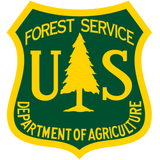 Forest Service
Forest Service
 Red Cross
Red Cross
 Walmart
Walmart

